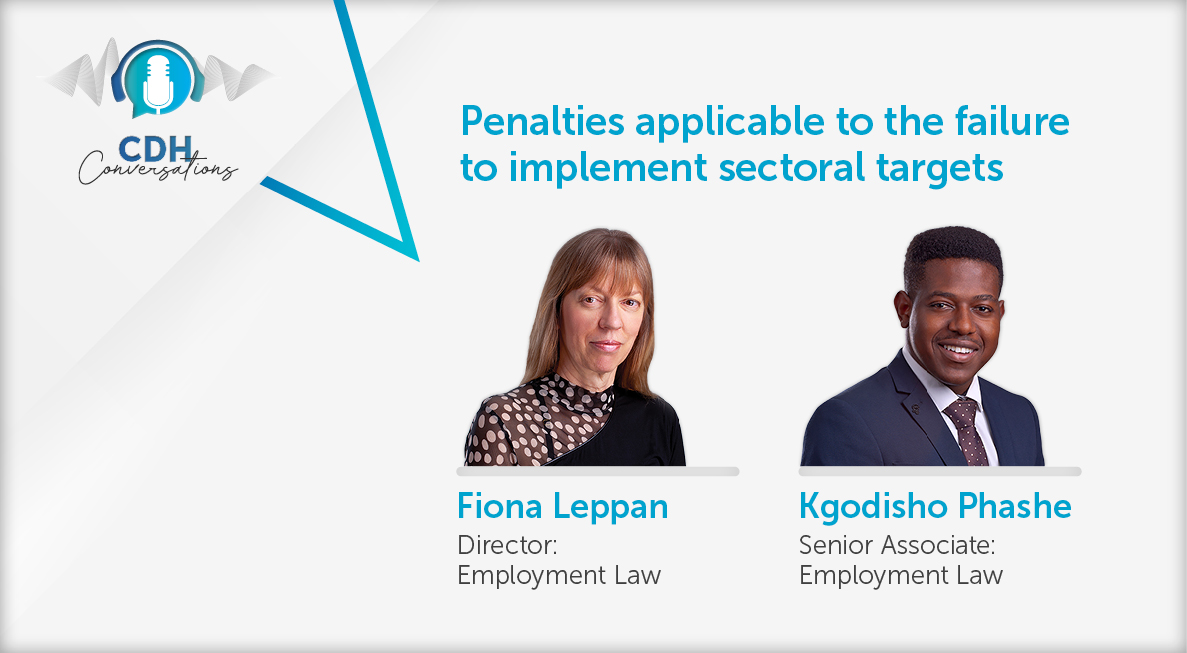Stakeholders’ high hopes of the commercial legalisation of cannabis go up in smoke with the publication of the draft Bill on cannabis for private purposes
This Bill was drafted at the direction of the Constitutional Court in the seminal case of Minister of Justice and Constitutional Development & Others v Prince (Clarke and Others Intervening); National Director of Public Prosecutions and Others v Rubin; National Director of Public Prosecutions and Others v Acton [2018] ZACC 30. In this judgment, Judge Zondo referred certain legislation back to parliament to be redrafted to cure its deficiencies insofar as the legislation unconstitutionally infringed on one’s right to privacy by criminalising the private use and cultivation of cannabis.
While it was not expected that the referral back to parliament would result in the wholesale legalisation of cannabis in South Africa, those with skin in the game felt quietly optimistic that the coming Bill would be the first step in a revised, progressive approach to cannabis, one which would in due course see the unlocking of the myriad benefits of the plant, such as the tax revenue which could be generated, the jobs created, or the environmentally-friendly textiles and building materials which could be sustainably and cost-effectively produced.
Upon even a cursory glance at the Bill, those hopes were very quickly dashed. The first, and possibly one of the more concerning problems with the Bill, is that it has been drafted by the Department of Justice and Correctional Services. This belies a particularly conservative approach to the drafting process. The focus remains on restricting access to, and the use of, cannabis against the threat of rather severe legal consequences in the form of fines and jail time. What those in the industry were hoping for was a collaborative effort between the various departments such as Health, Agriculture, Finance, and the like. The drafters have seemingly adopted a rather narrow and traditionalist perspective in their preparation of the Bill, which as currently constructed, does not give an inch more than was mandated by the Constitutional Court.
This is indeed a great pity. In the Constitutional Court, Justice Zondo went to great length to detail the global approach to cannabis, namely, the total legalisation thereof in developed economies and the rationale behind such thinking, plus the very real benefits to society as weighed against the exaggerated and unsupported case made so far against legalisation. In the last few weeks, we have even seen a call from the Governor of Pennsylvania in the United States to legalise cannabis saying that the government could use the tax revenue to support small businesses – in the wake of the COVID-19 pandemic - and restorative justice programs.
However, perhaps the most glaring of all the omissions from the Bill, is its complete failure to address any commercial aspects and opportunities of cannabis, short of de-scheduling hemp with an extremely unrealistic Tetrahydrocannabinol (THC) level of less than 0.2% - this is almost impossible when considering the favourable South African growing conditions. Furthermore, by prohibiting the exchange of remuneration for cannabis, cannabis plants, seeds and seedlings, the Bill envisages idealistic altruism while completely ignoring the commercial realities involved in growing, processing and supplying cannabis for personal consumption. In practice, this amounts to self-defeating legislation, forcing the average person to obtain cannabis illicitly, reinforcing the existing black market and depriving the economy of attainable tax income.
Currently, the only commercial opportunities available in the industry relate to farmers who can obtain a licence to either export their yield or supply it to a laboratory which has the necessary licences for the treatment, processing and manufacturing of cannabis related products. This in insufficient to ensure that the whole country has the opportunity to participate in, and benefit from, the cannabis economy.
Having consulted widely in the industry from large corporates to young entrepreneurs, there is a multitude of commercial concepts and ideas waiting in the shadows to be launched upon commercial legalisation. This includes retail shops for cannabis supplies and products, cannabis dispensaries, businesses offering kits for the DIY cultivation of cannabis at home, “Grow Clubs” which offer professional services to grow your cannabis on your behalf, plus all of the small-scale farmers who could be brought into the formal economy and generate tax revenue by being able to utilise small holdings to grow cannabis
– particularly in rural areas – which grows easily and abundantly in South Africa. These enterprises are, for the time being, forced to operate as part of the informal economy, meaning that there is a lack of regulation and a haemorrhaging of potential tax revenue.
What the current Bill does offer is a detailed schedule of the quantities of cannabis and related products, including derivatives that can be grown and possessed by individuals in accordance with their right to privacy. While this is welcome clarity, the Bill ignores the daily lived realities of most South Africans who live on or below the poverty line. Such persons do not have the benefit of garden space to grow their plants, or enough rooms in their dwellings to ensure that they can participate in the benefits of the Bill while not violating the stringent conditions applied therein. As such, the Bill is exclusionary and does not offer equal opportunity to all South Africans.
Lastly, we must give credit where it is due in that the Bill provides for the expungement of criminal records resulting from previous convictions which would not have materialised had this Bill been of force and effect at the time of such conviction. It has long been voiced by critics to the criminalisation of cannabis, that the incarceration of cannabis users is irrational and disproportionate to the balance of our legal system, such as when comparing an arrest and incarceration for possession of a small amount of cannabis, to the public’s ability to purchase, possess and consume as much alcohol as they desire, which is arguably far more damaging to society as a whole.
Where to from here?
The next steps in the legislative process are for Parliament to engage stakeholders and the public at large on the draft. Even in the short time that the Bill has been circulating, it has become abundantly clear that Parliament are in for a marathon public participation process in which the stakeholders and public will pick apart the shortcomings of the Bill. This will hopefully result in the drafters revisiting the Bill and the general approach to cannabis regulation and legalisation which is currently taking place in such a piecemeal fashion that it will likely become more burdensome on the state to enforce such provisions.
In summary, the Bill is receiving criticism more for what it lacks, than for what it contains. The Bill (as currently constructed) is a conservative unduly limited document which, if proclaimed into law, would be considered a step backwards in the legislative process as it aims to harshly criminalise absolutely anything relating to cannabis that falls outside the narrow scope of Judge Zondo’s judgment.
The public is now left to wonder what, if anything, is being done about the commercial potential of cannabis. The commercialisation of cannabis has been alluded to by senior government officials - in addition to the eulogising of the plant’s potentialities by Judge Zondo. We have seen this at, for example, the President’s State of the Nation Address in February 2020 which claimed that the next twelve months would see the acceleration of the commercialisation of hemp and cannabis products, and also in Finance Minister, Tito Mboweni’s viral tweets about the benefits to the economy of the legalisation of cannabis, inspired from his own cannabis plants on his family’s farm.
The Bill is therefore simultaneously promising, but also very disappointing. The industry now waits with bated breath for any announcements or Bills on the commercial unlocking of cannabis and its potential.
The information and material published on this website is provided for general purposes only and does not constitute legal advice. We make every effort to ensure that the content is updated regularly and to offer the most current and accurate information. Please consult one of our lawyers on any specific legal problem or matter. We accept no responsibility for any loss or damage, whether direct or consequential, which may arise from reliance on the information contained in these pages. Please refer to our full terms and conditions. Copyright © 2026 Cliffe Dekker Hofmeyr. All rights reserved. For permission to reproduce an article or publication, please contact us cliffedekkerhofmeyr@cdhlegal.com.
Subscribe
We support our clients’ strategic and operational needs by offering innovative, integrated and high quality thought leadership. To stay up to date on the latest legal developments that may potentially impact your business, subscribe to our alerts, seminar and webinar invitations.
Subscribe




